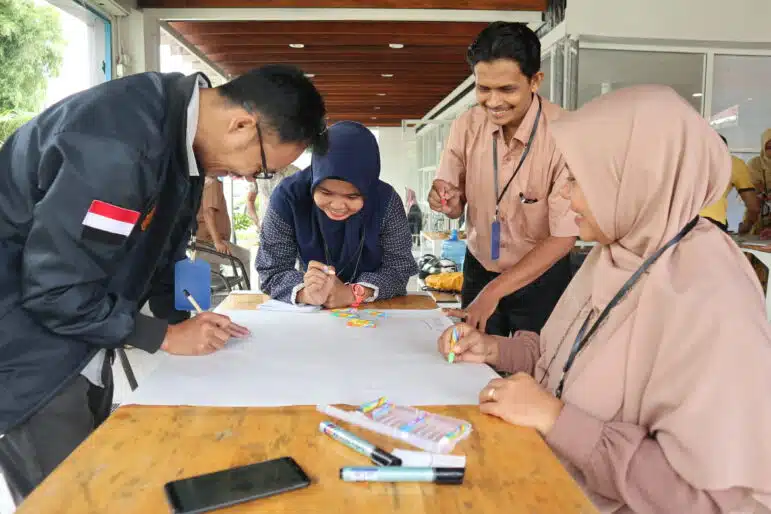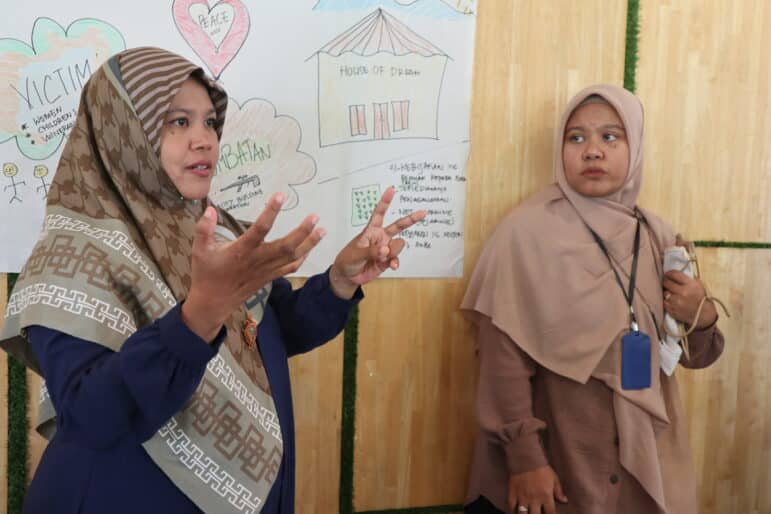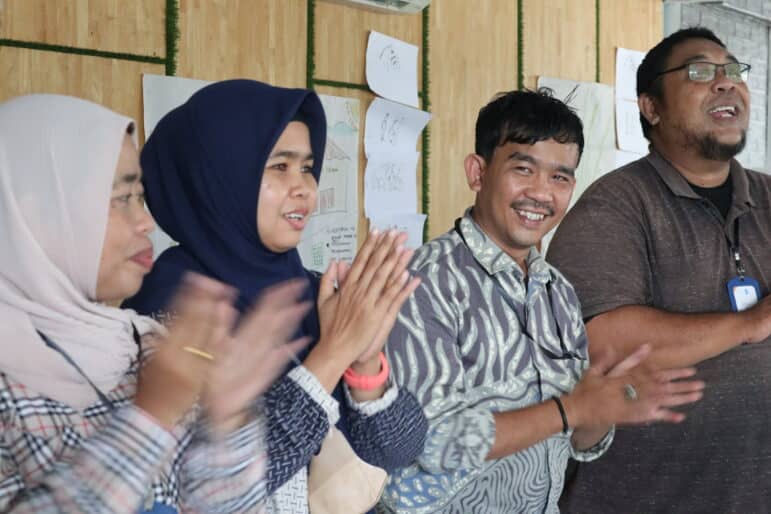Collaborating for Lasting Peace in Aceh
By Aldrin Norio
While a peace agreement was signed in 2005, lasting peace remains elusive in Aceh, Indonesia. Six local organizations have come together to bring a fresh approach in supporting Aceh’s ongoing efforts on transitional justice and reconciliation, promotion of women’s and children’s rights, and strengthening civil society.
Working together to sustain ongoing efforts
Aceh, an Indonesian province on the northwestern tip of Sumatra, has an enduring history of armed conflict for nearly 30 years. In 2004, the Indian Ocean Tsunami struck and devasted most of the coastal areas of the province which helped push forward the 2005 peace agreement between the Government of Indonesia and the leaders of the Free Aceh Movement, known in Indonesian as the Gerakan Aceh Merdeka (GAM).
Almost 18 years since the peace accord, Aceh’s future in achieving long-lasting peace is faced with several challenges. Daily violence remains at the community level, especially against women and children. Reconciliation and justice efforts in local communities, including reparations for victims of human rights abuses are long-delayed. Many people, particularly women and girls again, are excluded from the work of the peace process.
To reinvigorate the peace process, NP is partnering with the Royal Government of the Netherlands for the SPEAR project, or Sustaining the gains of peace, equal rights for women and attaining reconciliation in Aceh. The project focuses on partnering with six local civil society organizations to strengthen their work to sustain the peace process. The six organizations that make up the consortium are KontraS Aceh, Koalisi NGO HAM, Yayasan Bantuan Hukum Anak Peutuah Mandiri (YBHA), Balai Syura Ureung Inong Aceh (BSUIA), Flower Aceh, and La Kasspia.
“[The consortium] has the advantage of knowing and learning from each other, seeing from different perspectives through the respective work of each organization towards the betterment of Aceh,” shared Faisal, Programme Manager of KontraS Aceh, during the project inception workshop last December 2022.
Different contributions but one aspiration
The SPEAR project will support the six organizations as they undertake transitional justice and reconciliation efforts, the promotion and protection of human rights, and increase their own capacity and contribution to sustain the gains of the Aceh peace process. The six local organizations are divided into these thematic areas with respective focus and role to contribute in the overall goal of the project.
- KontraS Aceh or The Aceh Commission for Disappearances and Victims of Violence will enhance the capacity of Aceh’s Truth and Reconciliation Commission (TRC) in the documentation of abuses and policy advocacy. They will also implement reparation recommendations to victims. Koalisi NGO HAM will strengthen trust and participation of victims and their families in the reparation process of Aceh government.
- Three women-led CSOs have similar objectives in advancing the promotion and protection of women’s and children’s rights. YHBA will provide case management support and protection to victims of sexual and gender-based violence (GBV) and their families. Balai Syura will intensify its efforts to lobby for the government to ensure the new criminal code in Aceh does not discriminate and violate the rights of women, girls and children. Flower Aceh will work to increase women’s participation in peacebuilding efforts and strengthen access to protection mechanisms.
- Meanwhile, La Kasspia will facilitate capacity-building and knowledge-sharing initiatives for civil society organizations, such as creating cross-regional events for leaders in various conflict-affected areas to share their experiences and learnings.
Approximately 4,200 people will benefit from the project, including women legislators, leaders, decision-makers and youth; women ex-combatants and their networks; women survivors of conflict; victims and their families, witnesses or perpetrators of human rights violations.
Advancing the capacity of the local community to build peace
As the convenor of the consortium, Nonviolent Peaceforce will invest in training and support for the six groups throughout the project.
“Because this consortium is led by NP as an international organization who give more knowledge and skills regarding managing project, we have learned many things like this work planning [in the inception workshop] but in a very specific way and results-based. This is a new way of [working] and we have never been like this before”, Faisal added.
NP’s goal is to support our local partners on topics such as organizational development, project management, financial management and accountability, monitoring and evaluation, responsible partnership, and resource mobilization so that they can sustain their work for the long run. Faisel and the other partners are hopeful:
“I hope this can really bring new way of working with local civil society organizations, because it’s a privilege to become one of the members [of this] consortium. We hope this can also give the opportunity to really gear up or increase one level up [the capacity] of local organizations."



